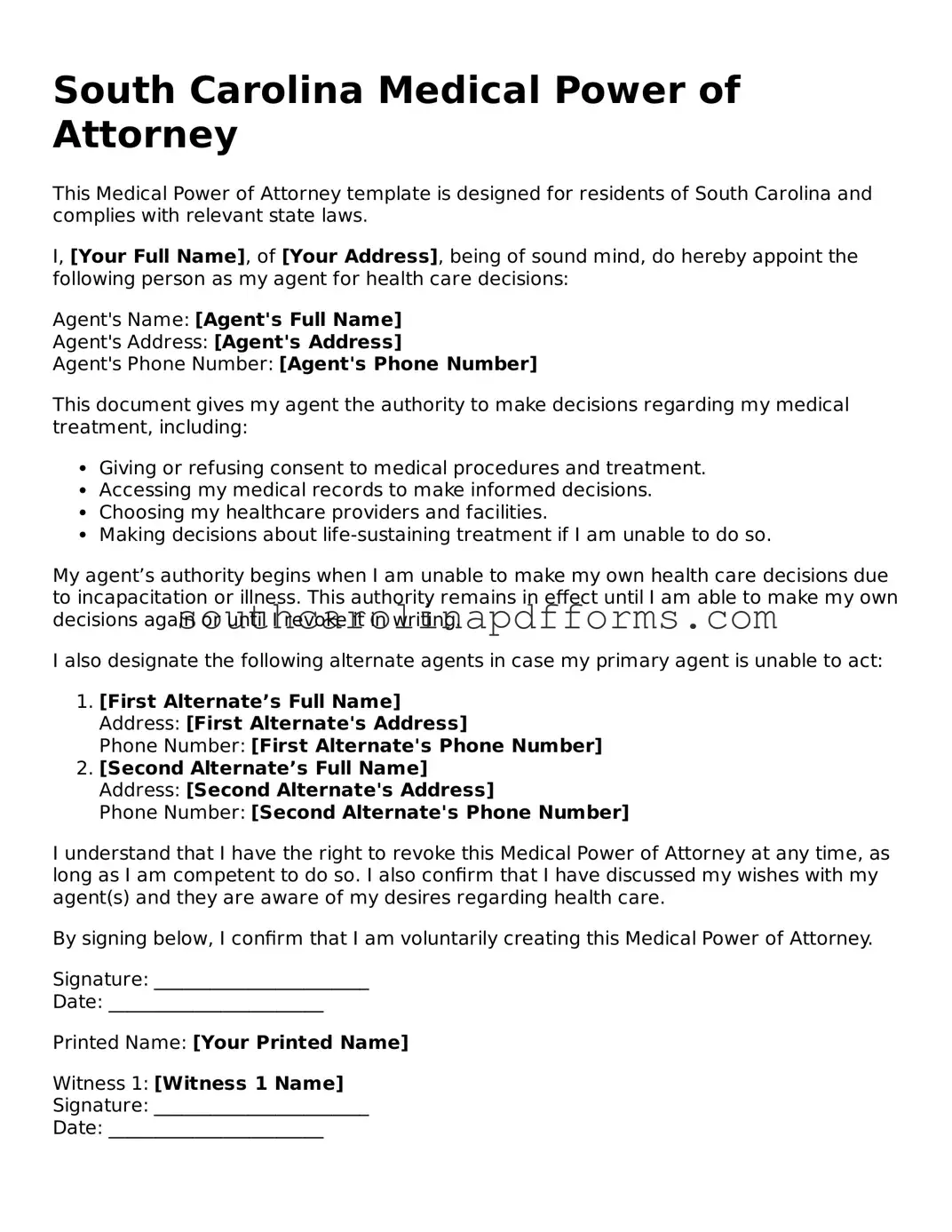In South Carolina, the Medical Power of Attorney (MPOA) form serves as a crucial legal document that empowers individuals to designate a trusted person to make healthcare decisions on their behalf when they are unable to do so. This form is particularly important for ensuring that a person's medical preferences are honored during critical times, such as severe illness or incapacitation. By completing the MPOA, individuals can specify their wishes regarding treatment options, end-of-life care, and other healthcare-related decisions. The appointed agent, often a family member or close friend, gains the authority to communicate with medical professionals, access medical records, and make choices that align with the individual's values and desires. It is essential to understand the requirements for executing this form, including the need for witnesses and notarization, as well as the rights retained by the individual even after granting authority. Ultimately, the South Carolina Medical Power of Attorney form is a vital tool for ensuring that healthcare decisions reflect the individual's wishes, providing peace of mind for both the person and their loved ones.
